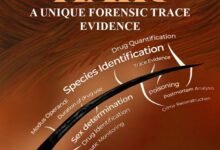The coalition against galamsey – What next?
The fight against illegal mining in Ghana has heightened more than ever in the history of the fight against the menace. Never in the history of the country has institutions, groups, organisations, faiths and of course the media come together to ensure the complete curtailment of the cancer from the society.
To date over 40 organisations have openly declared their support in the fight by stating their intentions to lay down their tools to put pressure on the government to institute pragmatic and effective measure to halt the activities of unscrupulous groups and persons involved in illegal mining.
Paramount among the demands is for the government to invoke Article 31 of the 1992 Constitution to declare a state of emergency to deal with the galamsey menace.
The Ghana Coalition Against Galamsey (GCAG), the Christian Council of Ghana (CCG), the Executive Women Network (EWN), the Office of the Chief Imam, the Trades Union Congress (TUC), Organised Labour and the Civil Society Organisations (CSOs) Platform on the Sustainable Development Goals among many others are exerting enormous pressure on government with respect to the stopping of galamsey agenda.
The Trade Union Congress for instance has given government up to the 10th of October 2024 to work towards this else it will activate a nationwide strike. The MCAG in collaboration with multiple stakeholders such as the GCBC, have also given a two-week ultimatum to the President to take action to stop the illegal mining scourge or be prepared for industrial action and massive protests.
The TUC specifically warned that if government did not act on the demands by the end of September, it would embark on a series of demonstrations and a nationwide strike to press for action.
This was at a press conference in Accra where the President of the GCBC, Most Rev. Matthew Gyamfi; the General Secretary of the CCG, Rev. Dr Cyril G. K. Fayose; the President of the Ghana Journalists Association (GJA), Albert Kwabena Dwumfour; the Deputy National Coordinator of A Rocha Ghana, Daryl Bosu; the Chairperson of the Executive Committee of EWN, Janet Sunkwa-Mills; the Convener of the Media Coalition Against Galamsey, Dr Kenneth Ashigbey, and the Deputy Secretary General of the TUC, Kenneth Koomson were all present.
At various events in Accra yesterday, the Media Coalition Against Galamsey and Organised Labour asked the government to be decisive in dealing with the life-threatening menace, while the Ghana Catholic Bishops’ Conference (GCBC) and the Ghana Association of Medical Laboratory Scientists (GAMLS) said in separate statements that the need for action had become urgent.
A multi-stakeholder coalition, addressing one of the events, called on the government to put a moratorium on all forms of small-scale mining, including community mining, with immediate effect.
The Ghana Coalition Against Galamsey has so much geared up and the Coalition is not tolerating any form of matter that will be opposite to its course. It has therefore expressed its displeasure towards the statement by the President of the National House of Chiefs and urged the House to clarify its stance on illegal mining activities in Ghana, particularly the widespread practice of “galamsey.”
This positive stance by all well-meaning individuals and organisations irrespective of their religion, political or tribal position has a high level of social awaking to the civic responsibilities of the Ghanaian.
The professional backgrounds as well as ideological beliefs have also revealed the scope of devastation of the illegal mining in the country.
The issue has, by and large, affected education, health, finance, economy, social, tradition, security, immigration, agriculture, environment, and even the religious situations of the people.
According to experts, it has cause erosion, sinkholes, loss of biodiversity, or the contamination of soil, groundwater, and surface water by chemicals emitted from mining processes. These processes also affect the atmosphere through carbon emissions which contribute to climate change.
Comprising various media organisations, the coalition expressed significant concern regarding the environmental and social repercussions of illegal mining, emphasising the necessity for strong leadership from the government in addressing this pressing issue.
Galamsey continues to be a threat to forest and water resources in Ghana. Even galamsey though galamsey is not new in Ghana, the use of heavy machines such as excavators and bulldozers, and chanfangs are a recent phenomenon causing destruction to forests, farmlands and river bodies.
The activity which is seen in almost every part of Ghana’s mining area has severely undermined the government’s commitment to the attainment of the 17 sustainable development goals. Successive governments since 1989 have made attempts to clamp down on illegal mining using military interventions.
Unfortunately, these programmes have failed to yield any results. Concerns about the destruction of the natural environment and the impacts of climate change have heightened the fear of illegal gold mining in Ghana.
The major cause of the failure has been identified as the lack of political goodwill, which stems from the involvement of galamsey by highly placed individuals such as politicians, traditional rulers, and people from the business community all of whom have strong connection with the political powers.
The recent huge outcry for survival which is demonstrated in the rampant street demonstrators demanding lasting solution to the galamsey pandemic, but from the government point of view much has been done and continue to be done to help salvage the situation.
Records have it that Illegal gold mining in Ghana commenced more than a century ago. Nonetheless, the first official government response in dealing with it was the legalisation of, ‘Small-Scale Gold Mining Law, PNDC L I 218’. (SSM in 1989). After the passage of this law, there was a military intervention to deal with all illegal miners.
Unfortunately, the passage of the law to legalise SSM and the military operation could not resolve the issues surrounding IGM in Ghana. In September 2006, the government announced an operation known as ‘Fight Against Illegal Mining or Operation Flush Out’. It was a nationwide military exercise to sweep illegal miners who were expanding to legal mining sites and causing destruction to the natural environment.
Thereafter several interventions have been made to stop the menace which has now turned to be out of control. The current government has initiated several moves some of which were so ambitious with the citizens deeming it as inhuman such as the burning of escalators. Some perpetrators have also been jailed. Very recently the government has formed a five-member Inter-Ministerial Committee to help fight but the government’s efforts appear not enough to bring this criminal activity to a halt but the people of the land say we need it to stop.
The government looks at income for the nation and jobs for its citizens but the people who need the jobs say stop the activity. What do we do?
It is believed that there is more to this than what is visible. To a large extent one can understand why it cannot be totally banned or banned, but can the illegal mining be halted?
The TUC’s intended nationwide strike appears to be what would bring the awakening to its peek. After that what next? Fantastic effort Kudos!
BY NANA SIFA TWUM (PHD)




